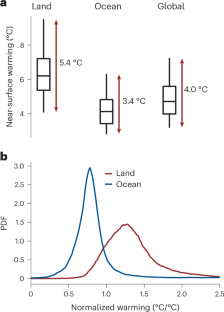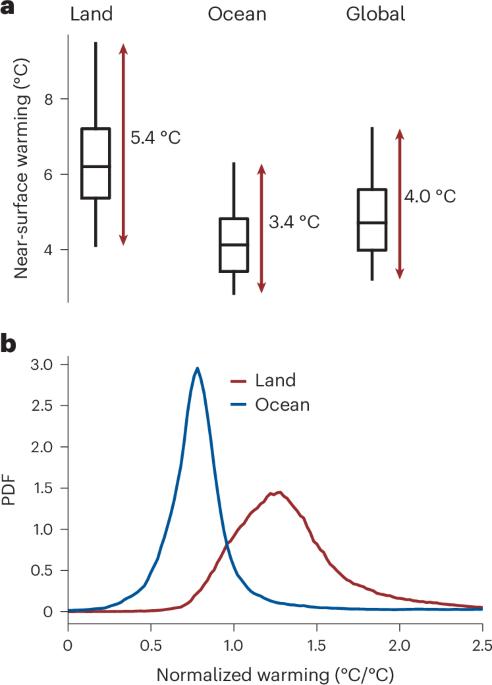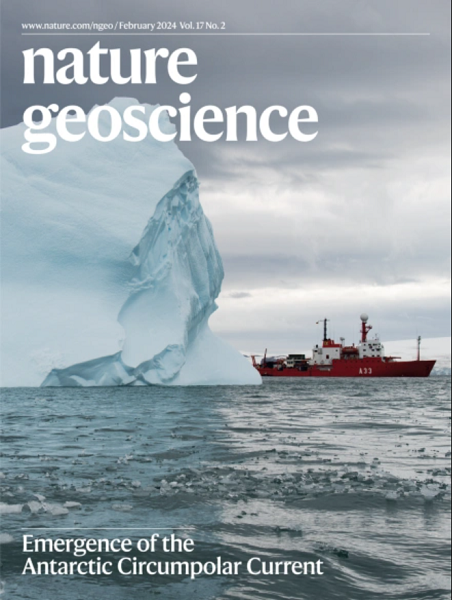理论与陆地气候科学的未来
IF 15.7
1区 地球科学
Q1 GEOSCIENCES, MULTIDISCIPLINARY
引用次数: 0
摘要
陆地--人类生活和生产大部分食物的地方--的气候正在迅速变化,极端高温、野火、干旱和洪水带来了严重影响。通过新的观测系统和日益复杂的地球系统模型,我们监测和模拟这种不断变化的气候的能力正在发生变化。但是,对陆地气候过程的基本认识却没有跟上步伐,这削弱了我们解释和利用这些先进工具所提供的数据的能力。在此,我们认为,要想加快陆地气候科学的发展,就需要另辟蹊径。我们主张开展一项并行的科学工作,一项强调稳健理论的工作,旨在激励当前和未来的陆地气候科学家更好地理解陆地气候的管理过程、其变异性和极端性及其对全球变暖的敏感性。我们认为,这种努力对于更好地理解人们在气候变化时代所面临的风险至关重要。本文章由计算机程序翻译,如有差异,请以英文原文为准。


Theory and the future of land-climate science
Climate over land—where humans live and the majority of food is produced—is changing rapidly, driving severe impacts through extreme heat, wildfires, drought and flooding. Our ability to monitor and model this changing climate is being transformed through new observational systems and increasingly complex Earth system models. But fundamental understanding of the processes governing land climate has not kept pace, weakening our ability to interpret and utilize data from these advanced tools. Here we argue that for land-climate science to accelerate forwards, an alternative approach is needed. We advocate a parallel scientific effort, one emphasizing robust theories, that aims to inspire current and future land-climate scientists to better comprehend the processes governing land climate, its variability and extremes and its sensitivity to global warming. Such an effort, we believe, is essential to better understand the risks people face, where they live, in an era of climate change. Accelerating progress in land-climate science requires a renewed focus on developing theory to complement and underpin Earth system models and observations.
求助全文
通过发布文献求助,成功后即可免费获取论文全文。
去求助
来源期刊

Nature Geoscience
地学-地球科学综合
CiteScore
26.70
自引率
1.60%
发文量
187
审稿时长
3.3 months
期刊介绍:
Nature Geoscience is a monthly interdisciplinary journal that gathers top-tier research spanning Earth Sciences and related fields.
The journal covers all geoscience disciplines, including fieldwork, modeling, and theoretical studies.
Topics include atmospheric science, biogeochemistry, climate science, geobiology, geochemistry, geoinformatics, remote sensing, geology, geomagnetism, paleomagnetism, geomorphology, geophysics, glaciology, hydrology, limnology, mineralogy, oceanography, paleontology, paleoclimatology, paleoceanography, petrology, planetary science, seismology, space physics, tectonics, and volcanology.
Nature Geoscience upholds its commitment to publishing significant, high-quality Earth Sciences research through fair, rapid, and rigorous peer review, overseen by a team of full-time professional editors.
 求助内容:
求助内容: 应助结果提醒方式:
应助结果提醒方式:


